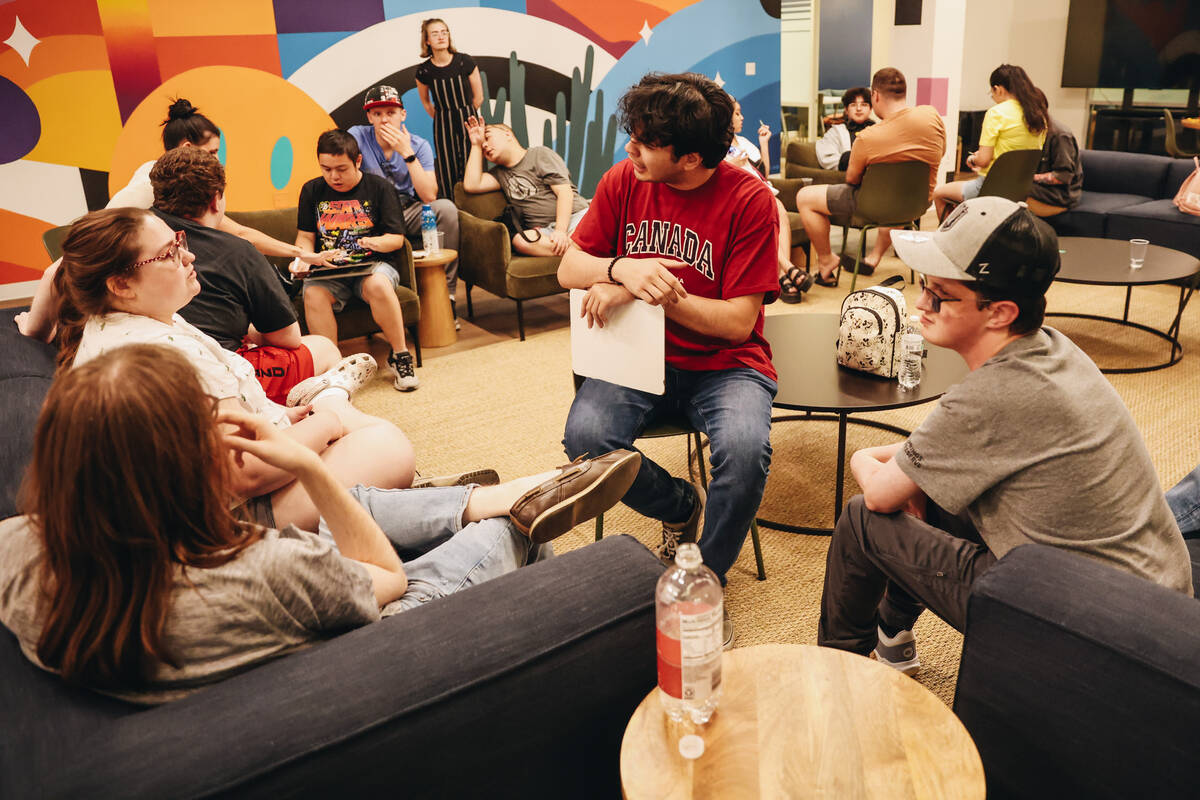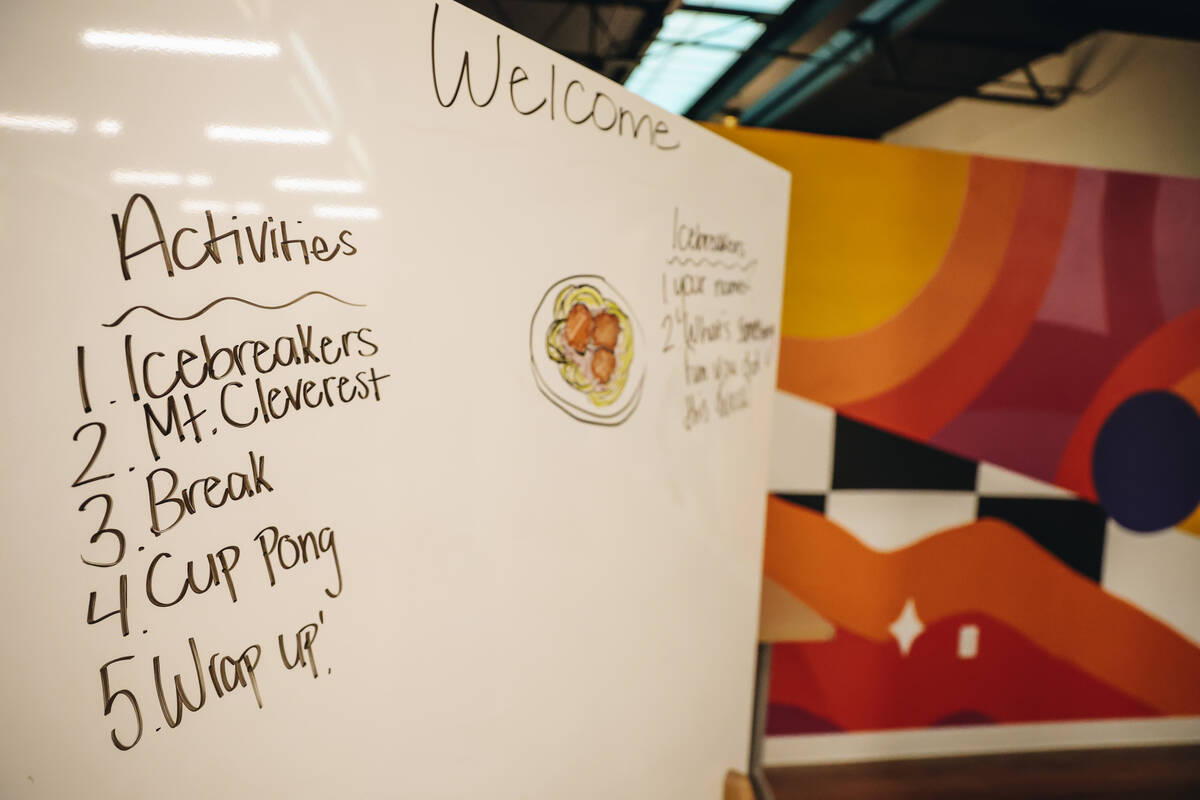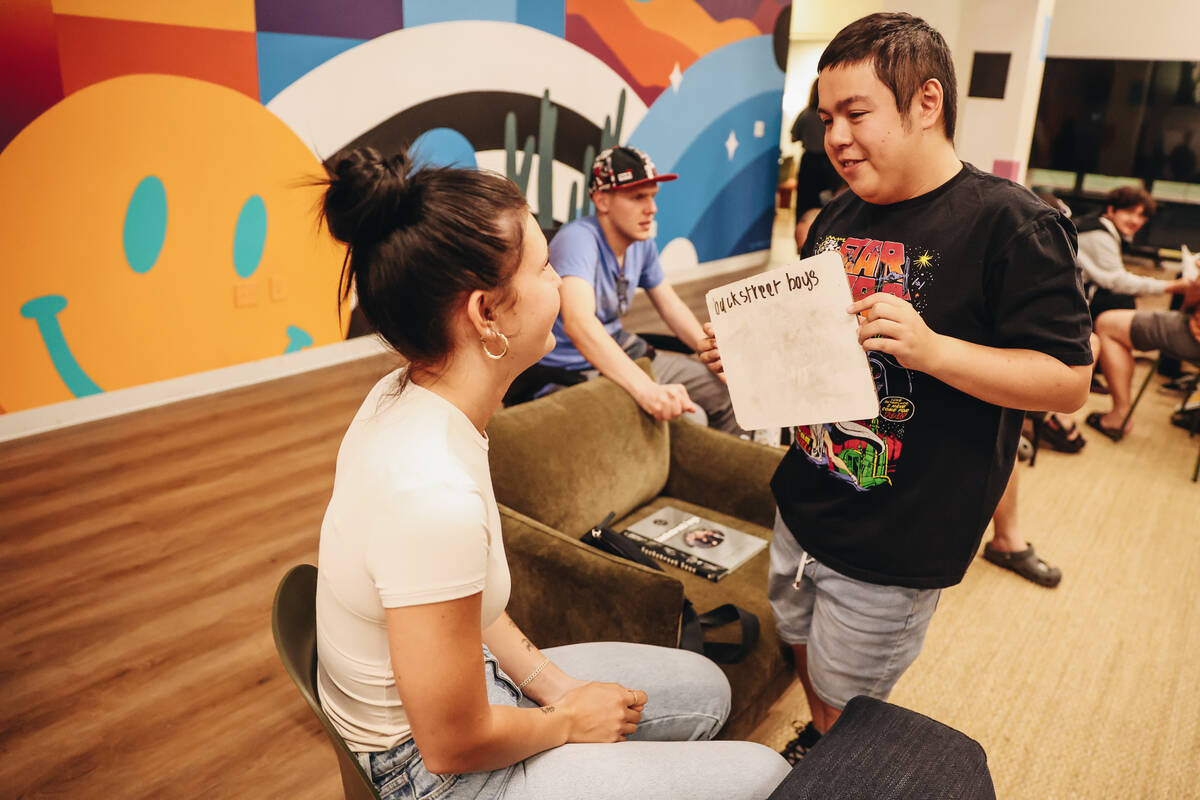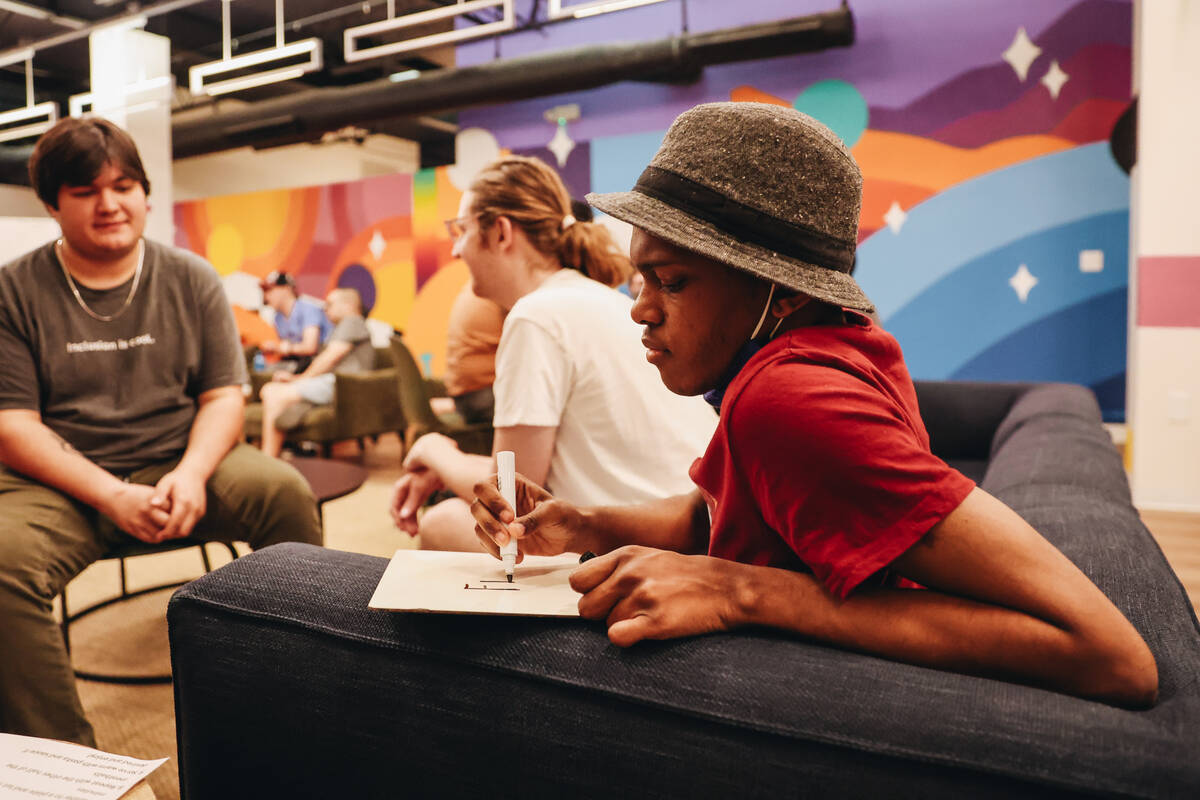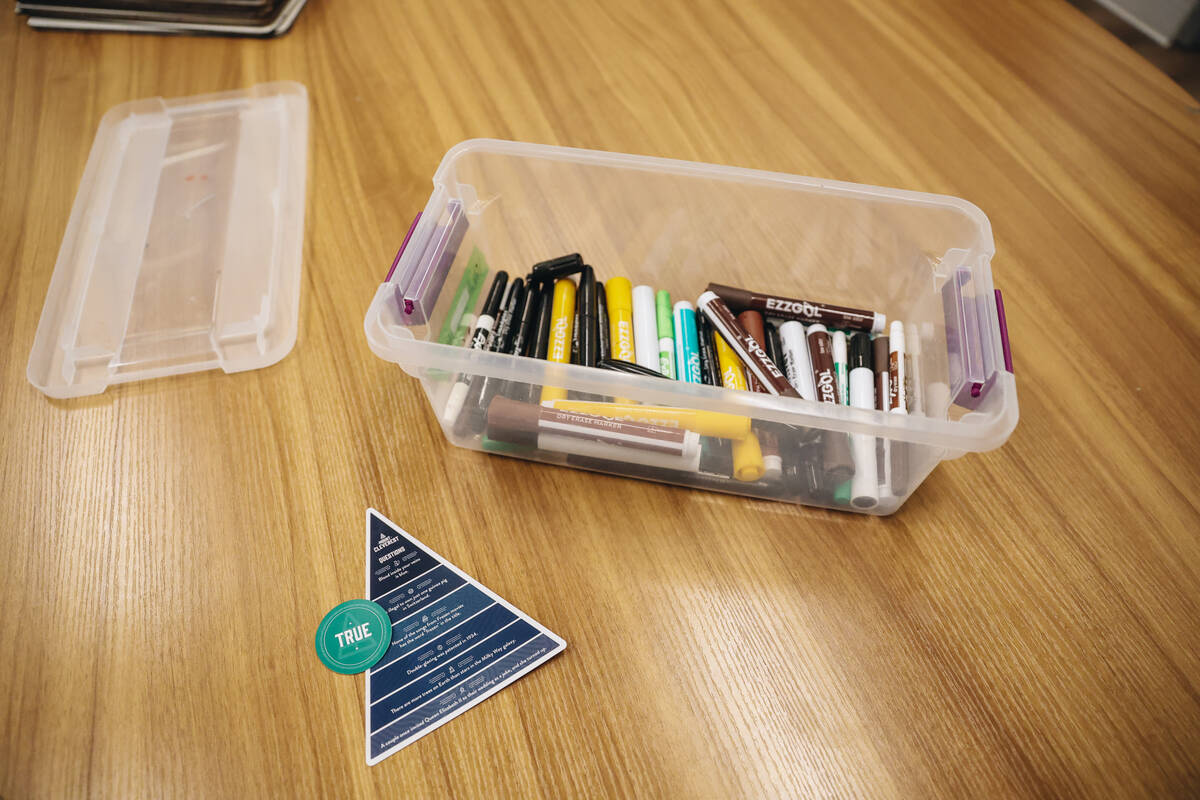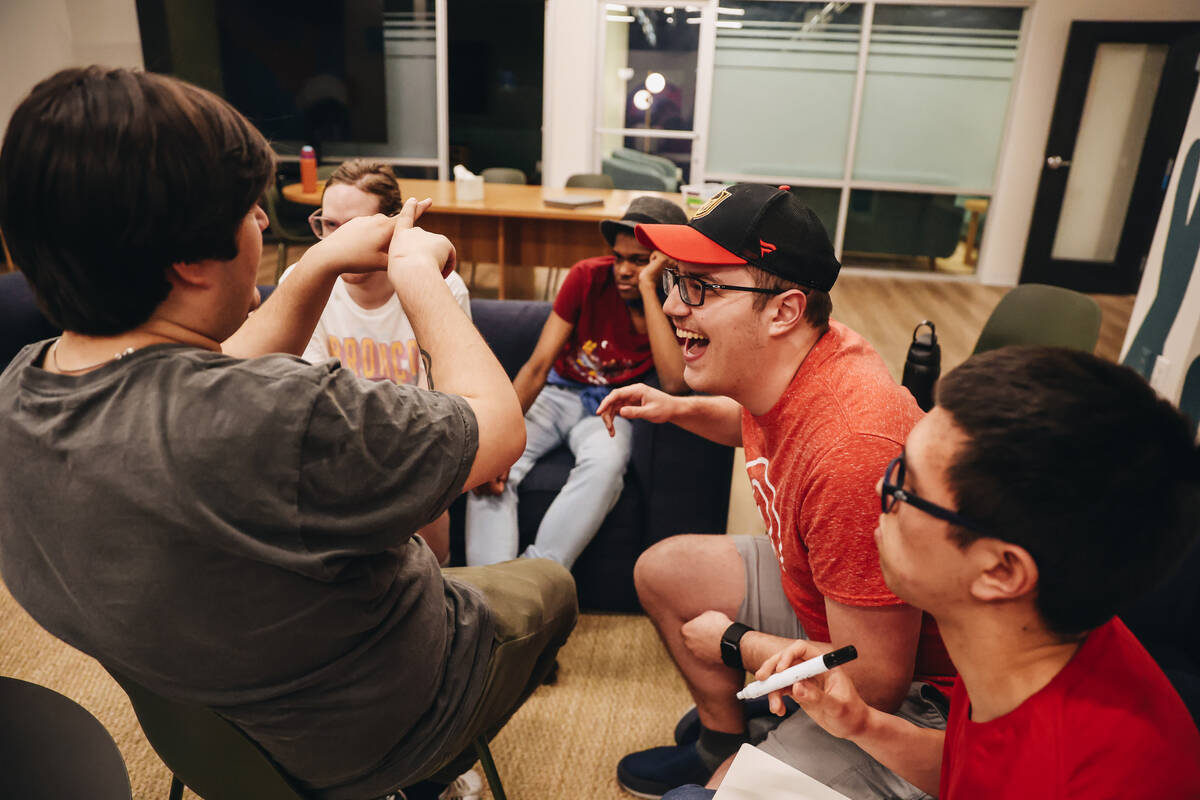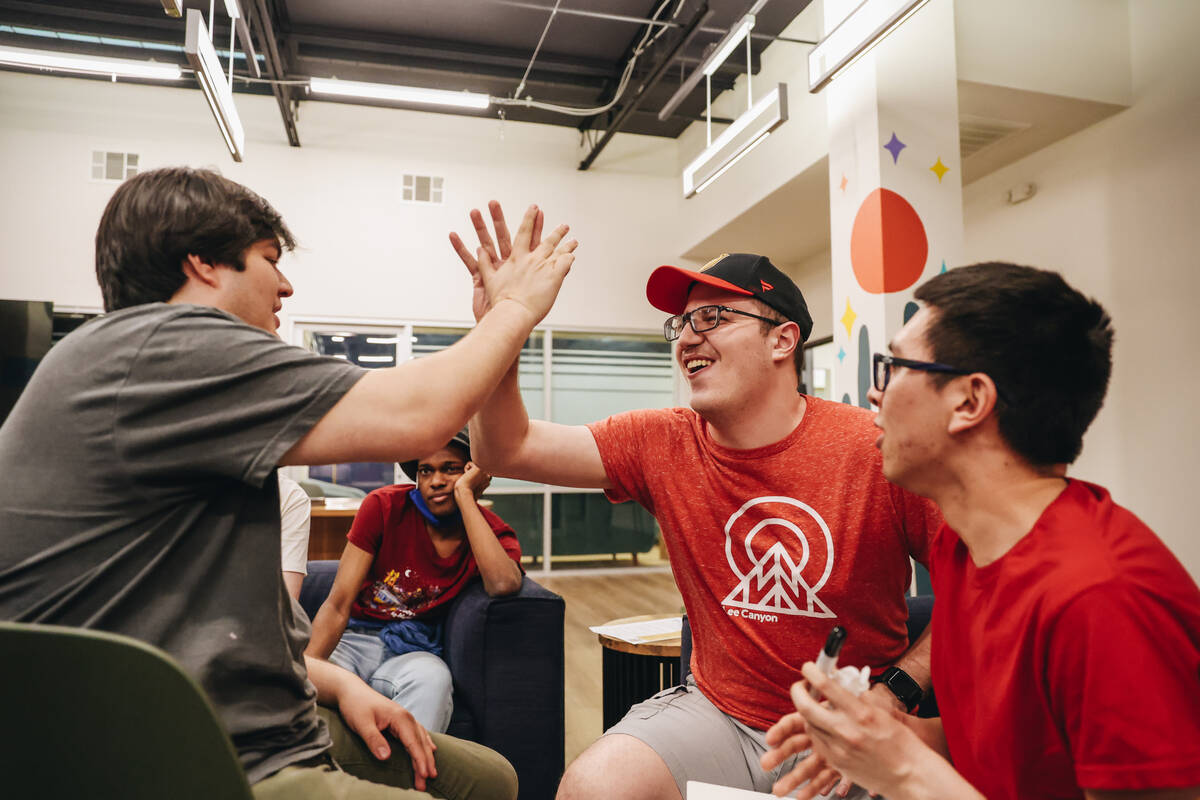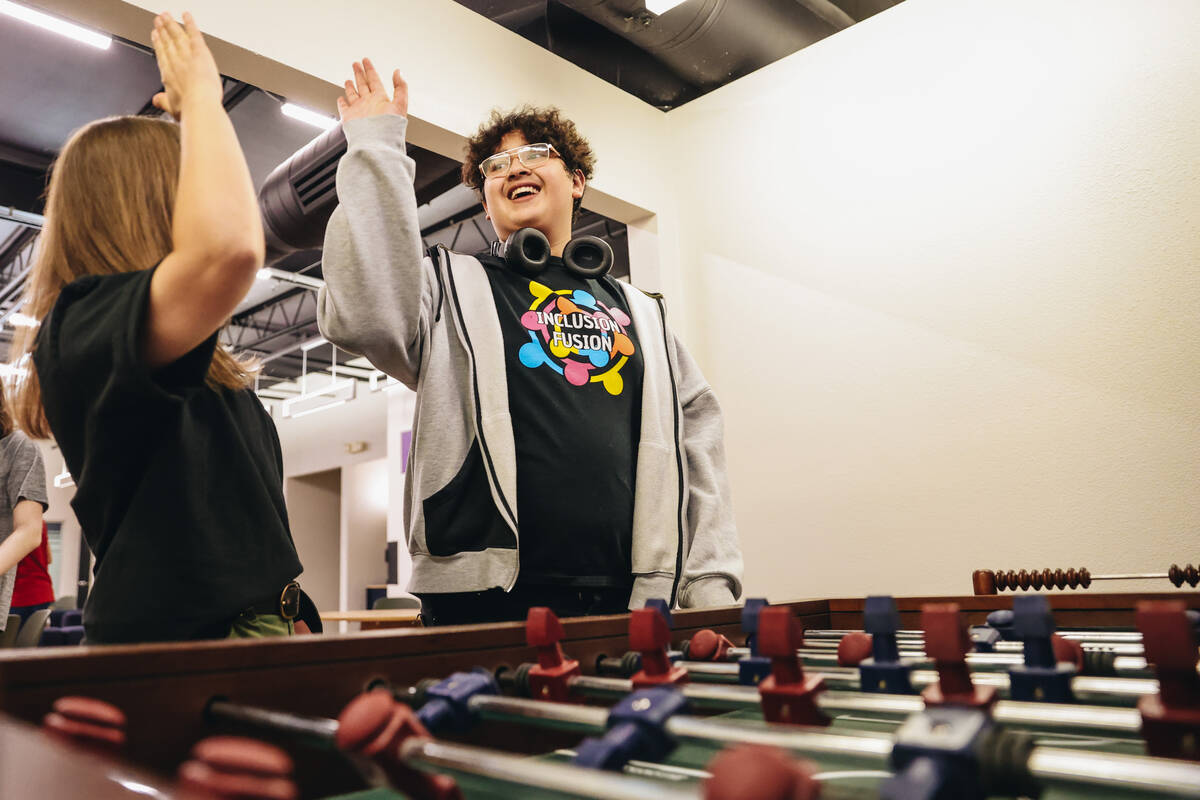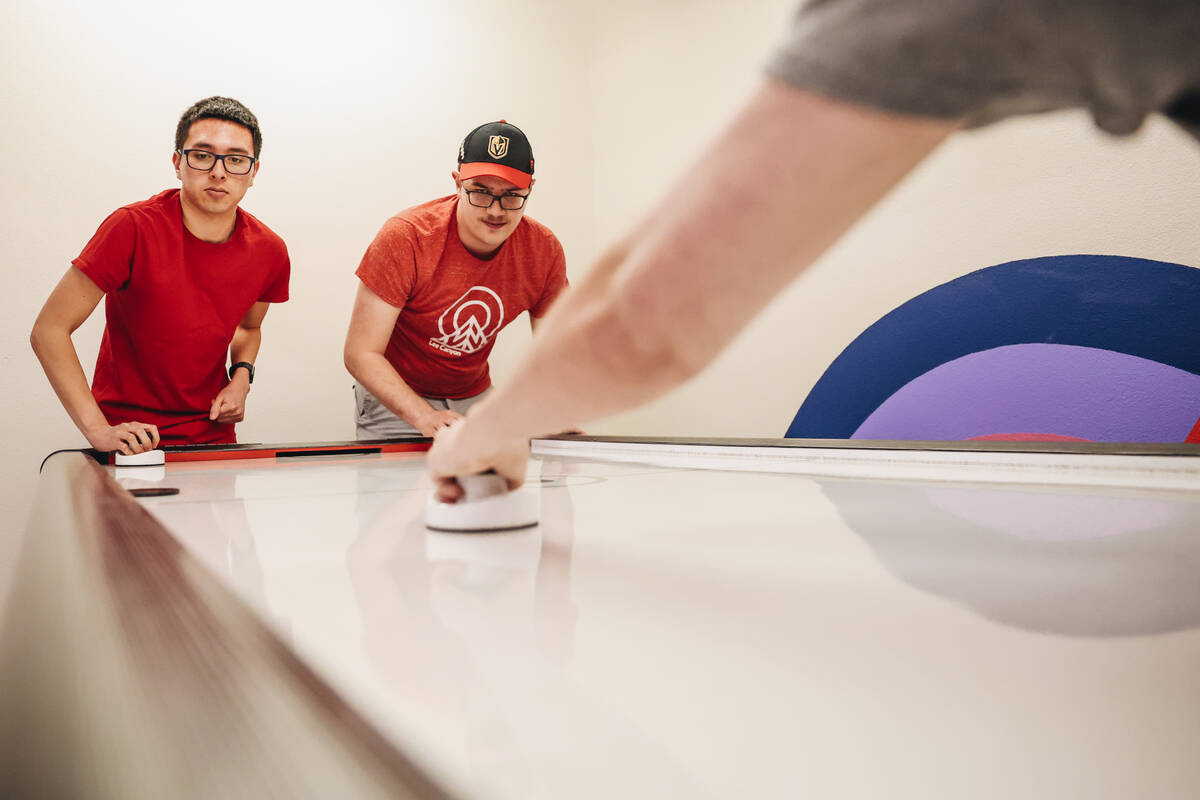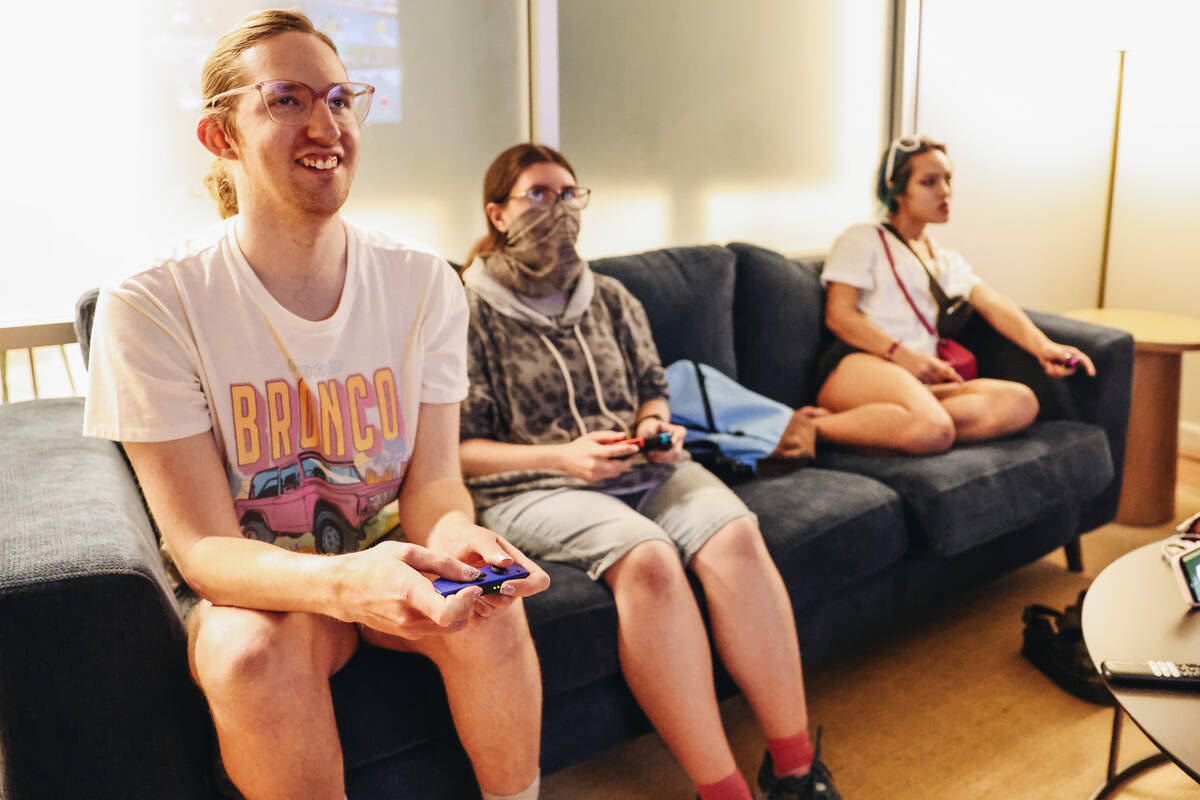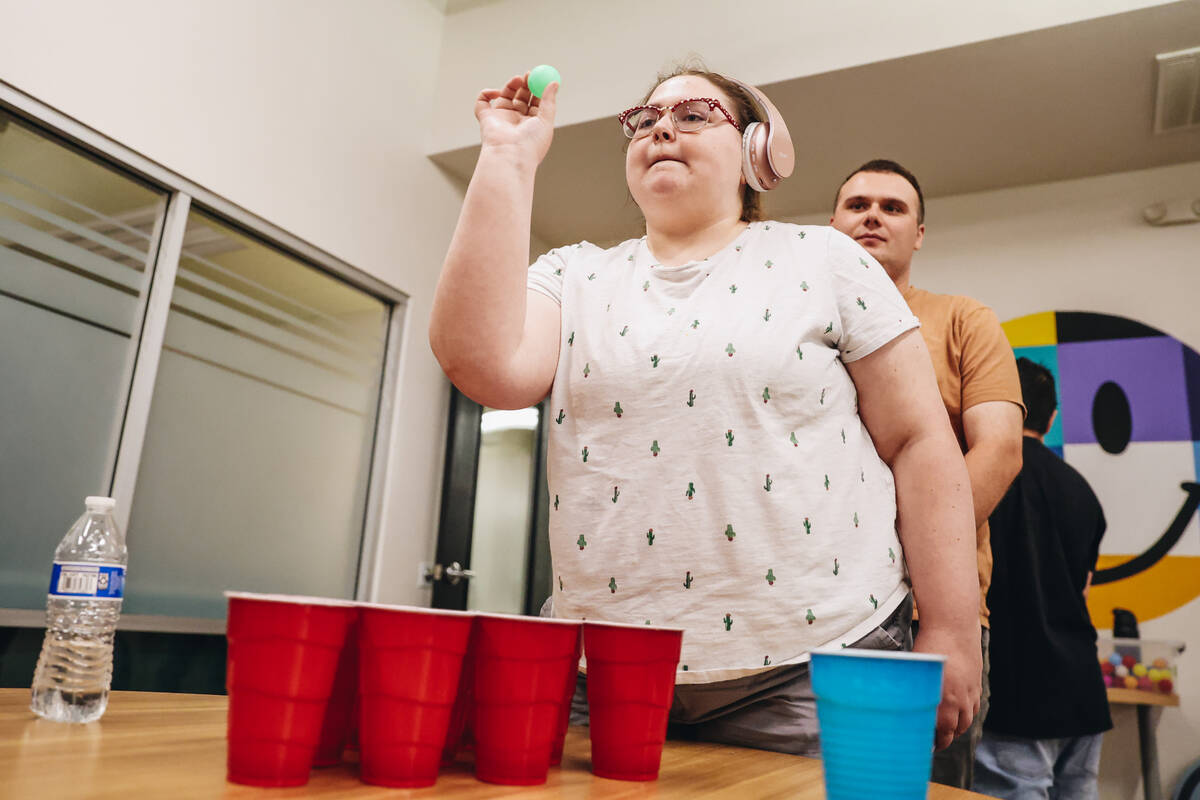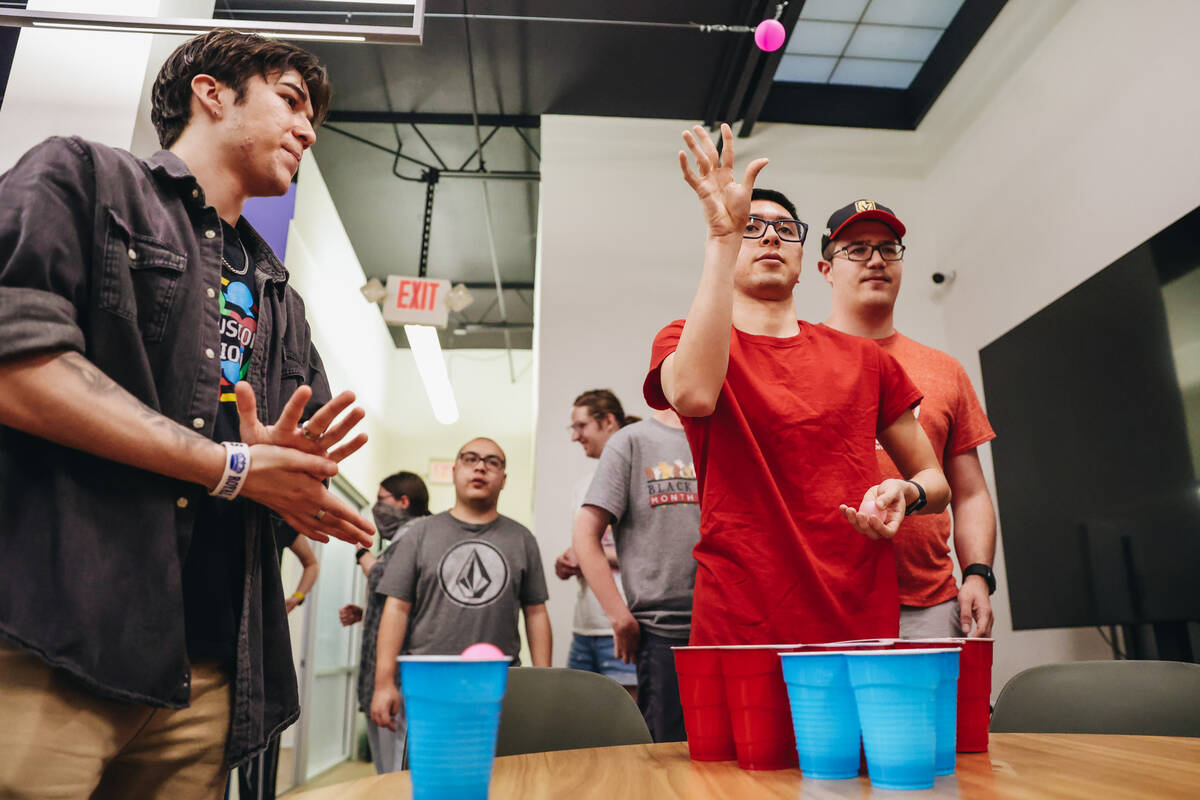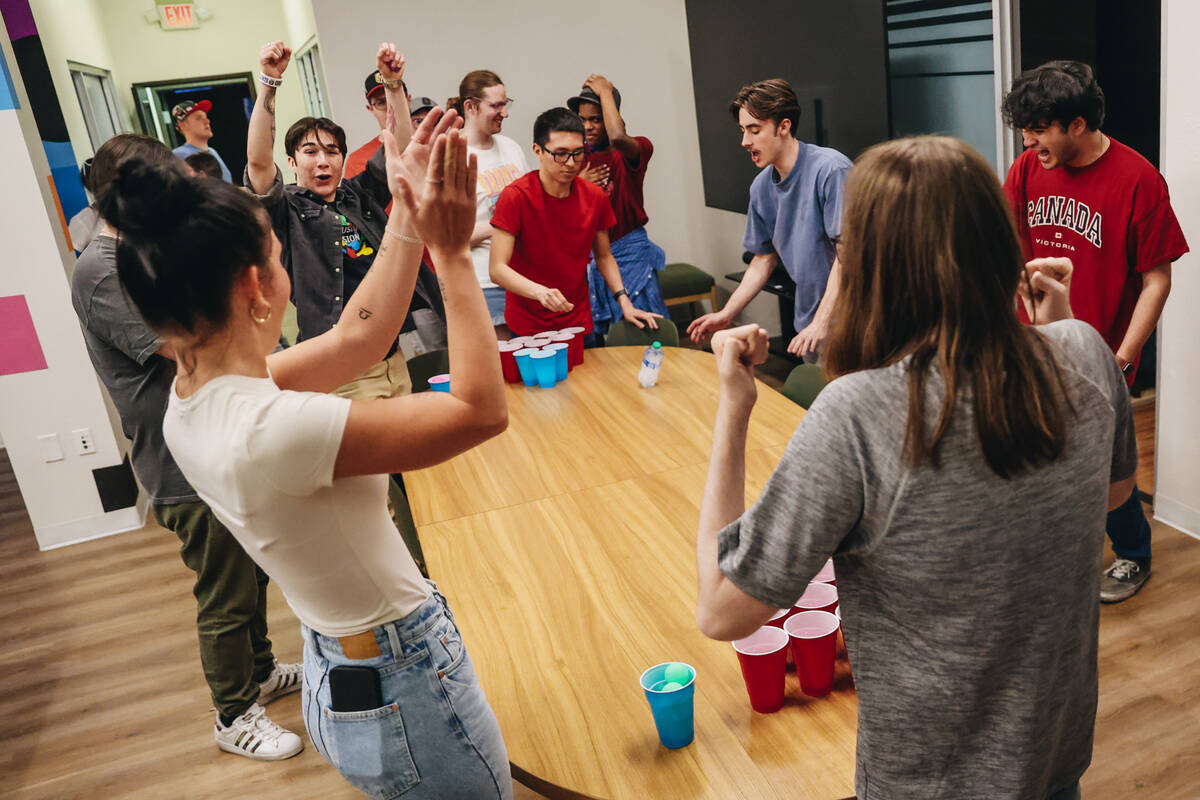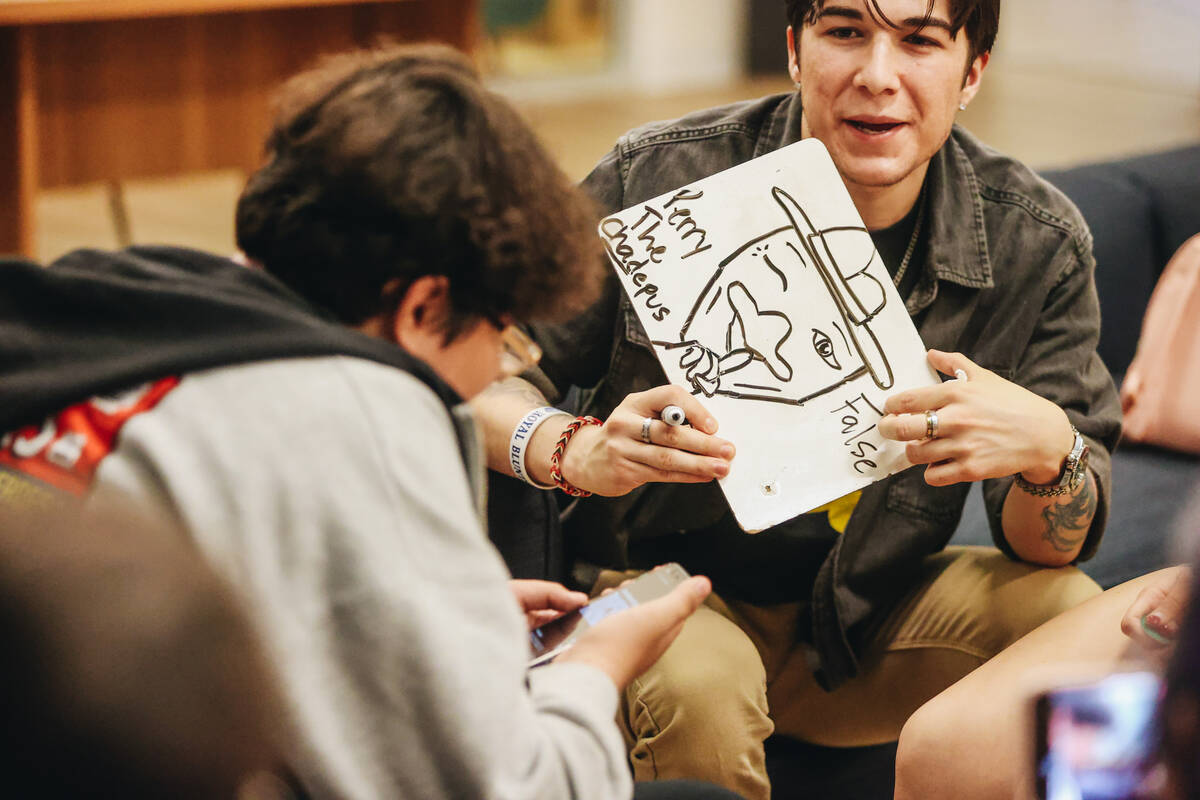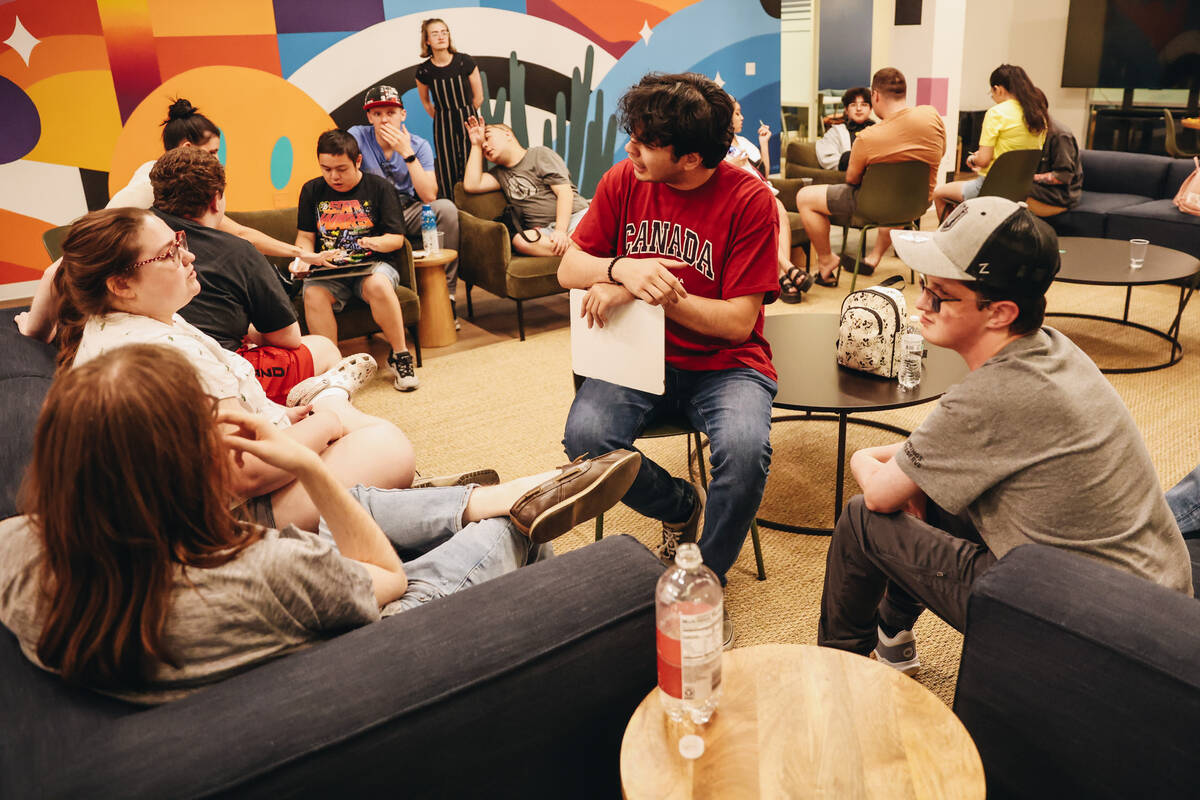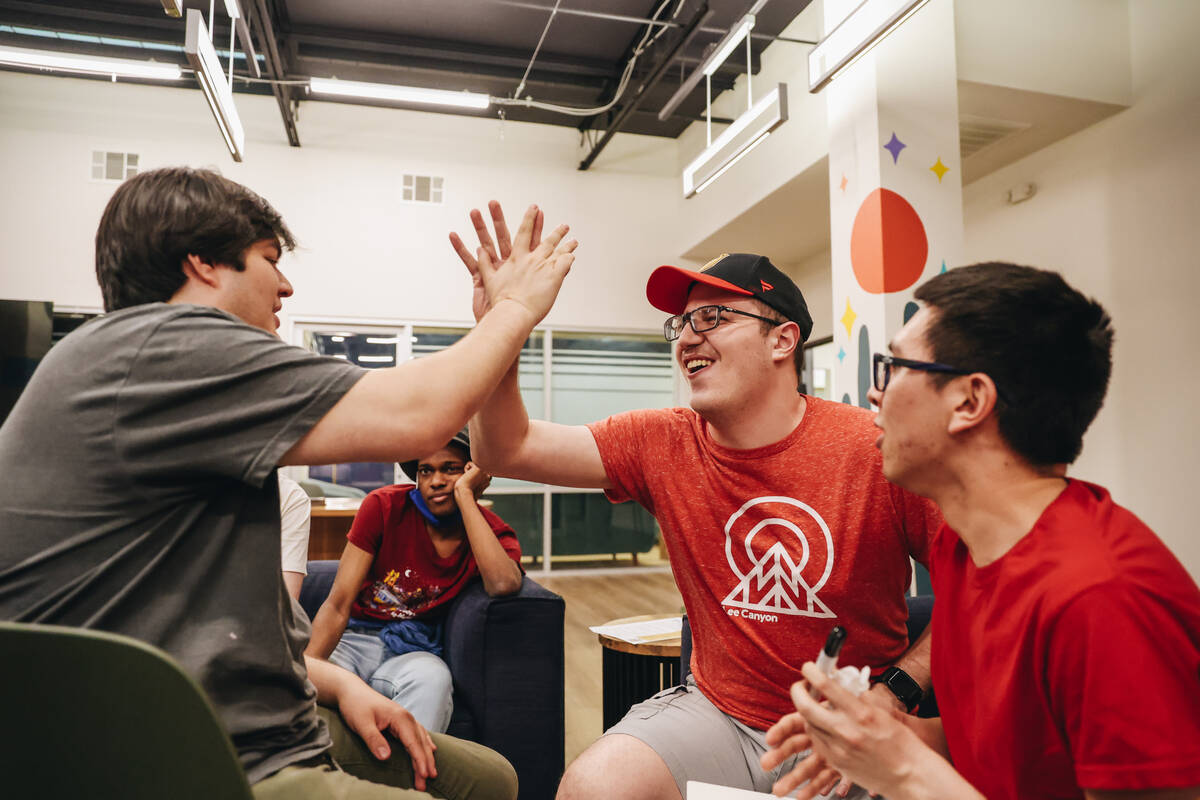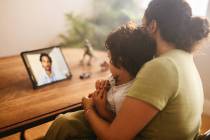‘Here, you don’t get judged’: A social outlet for teens, young adults with disabilities
Glance around, and it probably looks like any other gathering of teens and young adults doing the sorts of things — playing video games, laughing, talking — that teens and young adults gather to do.
Less obvious may be the commonality that these members of Inclusion Fusion share: disabilities, including autism spectrum disorder, that may make it difficult or more complicated for them to socialize with peers in more typical settings.
The Henderson-based organization in late February moved to a 6,000-square-foot facility at 11 Commerce Center Drive, offering ample space for the array of social events, classes, activities and special programs it offers. Members recently had their first trivia night. Other events have included social groups, classes in life skills and cooking, dance groups and even dating classes.
Mia Fortunato, co-owner and director of operations and marketing for the organization, said that what distinguishes Inclusion Fusion’s programs from those of other such agencies throughout the valley is its focus on older teens and adults, who may find a relative dearth or programming aimed at them after they leave high school.
Meeting a need
“Our bread and butter is socialization and making friends,” she said. Inclusion Fusion’s programs, classes and events draw an estimated 250 members each week, making it, according to Fortunato, one of the largest adult social programming efforts in Southern Nevada.
“We want to be a place where people can come and relax and hang out,” said Lillie Davis, program director, and to serve members in a “very naturalistic” environment.
Inclusion Fusion is intended to act as what often is called a “third place” — somewhere “outside of work and home and school where you can come to make friends,” Fortunato said.
It’s also designed to address a gap in services available to young adults with disabilities.
Members’ ages are 13 and up, Fortunato added, but most are ages 18 through 25.
According to Fortunato, ample programming and forms of assistance exist for children and teens through schools and other venues. But, when a teen with autism or other intellectual disability becomes a young adult, assistance and programming options dwindle.
Inclusion Fusion’s founders — it’s not a nonprofit, but a business, Fortunato said, even if a nonprofit sort of dynamic drives it — have “been involved in the (Las Vegas disability) community for a long time,” she said, and saw “gaps in the community.”
“We just saw a lot of people we grew up with who went from services in school to potentially nothing once they turned 18,” she said. “That’s the reason we focus so much on adults. We really are the only hangout spot for adults in Southern Nevada.”
Neurodiversity
Fortunato describes Inclusion Fusion as a neurodiverse organization whose members have conditions such as autism spectrum disorder, Down syndrome, traumatic brain injury, cerebral palsy and even anxiety, depression, post-traumatic stress disorder and obsessive compulsive disorder.
Because of their conditions, members may find it challenging or intimidating to meet people and socialize with peers in other settings.
After applying, a new member has an intake evaluation, and a peer group is recommended. “We want them to be comfortable around like-minded peers,” Fortunato said. “We want to create the most opportunities for friendship.”
Sara Cline, 23, has been a member of Inclusion Fusion since it opened in 2019. She learned about the organization from friends and likes the classes it offers and the chance to meet new friends for activities, even for something as informal as “movie night or karaoke” or just hanging out.
She also likes the vibe of acceptance at the center. At some other gatherings she has attended, “I felt like I wasn’t myself. I was judged by others,” Cline said.
“It’s easy for those on the spectrum to feel judged,” she added, and Inclusion Fusion marked “the first experience I felt like myself and wasn’t judged by others.
“Here, you don’t get judged, I can just be myself and hang out without being judged.”
She also finds it easier to interact with peers at Inclusion Fusion. In other social settings, “you might not be able to make conversation or you might feel anxiety,” Cline said.
A need to socialize
“If we weren’t there, I don’t think there would be a social hangout spot for these adults,” Fortunato said.
“I’d like to think there would be a place,” Davis added, “but I don’t think there would be.”
Socialization is vital for mental health, Fortunato said, and “mental health disorders are a lot higher in people on the autism spectrum.”
Studies also have linked autism with higher suicide rates, possibly because people feel “isolated and don’t have anywhere to go,” Davis said. “And we’re not therapy, but everyone needs (a social) outlet, and our members have that outlet in us.”
Membership fees range from $30 events to $220 per month for weekly groups, and Inclusion Fusion accepts funding through Desert Regional Center’s respite program and financial management services such as Palco. Because family resources and members’ needs are so varied, Fortunato encourages families to stop in for a tour and consultation.
The organization also plans a grand opening from 5 to 8 p.m. June 1.
For more information, visit inclusionfusion.org.



